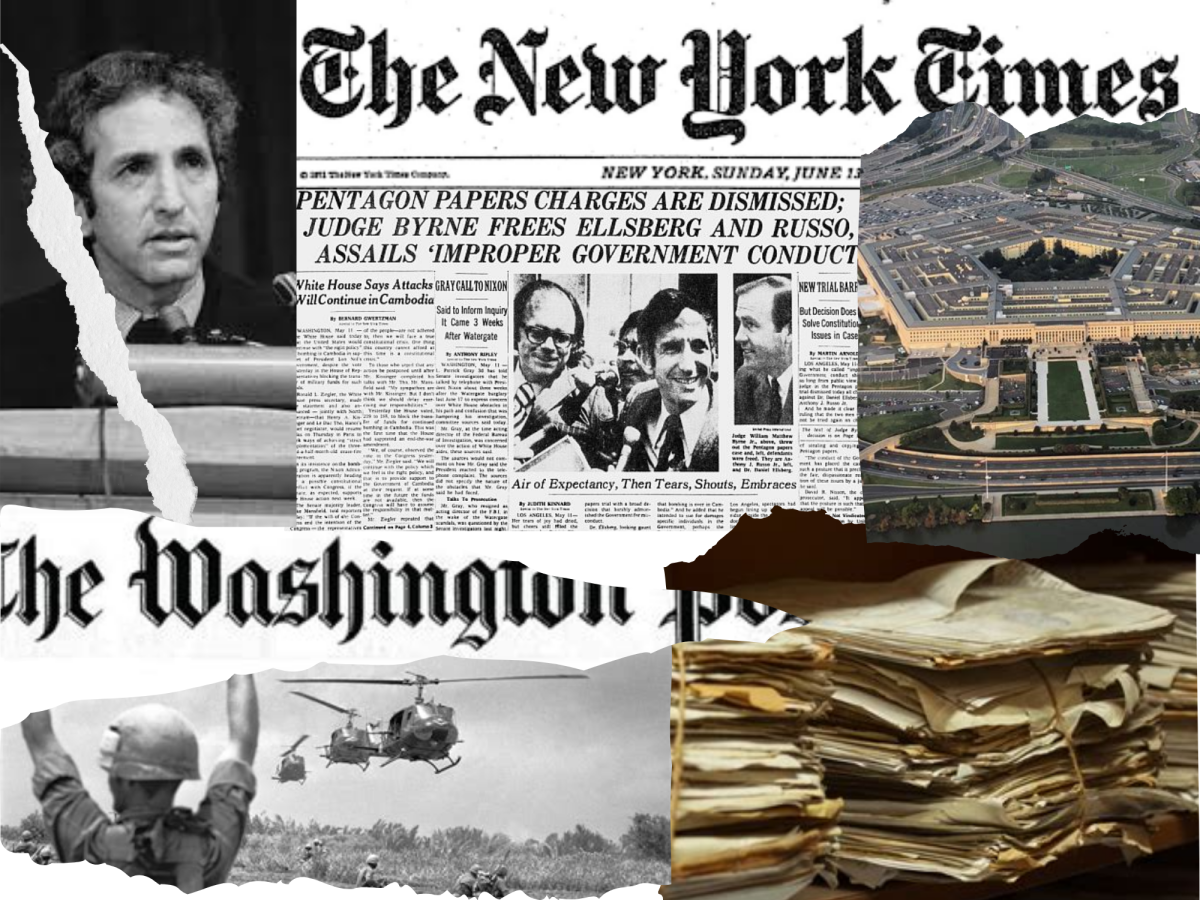Government secrecy often damages public trust, as clearly shown by the Pentagon Papers scandal. Leaked in 1971, the Pentagon Papers revealed how the government misled the public about the Vietnam War, significantly changing how Americans viewed their government. This event highlighted the need for transparency and accountability in shaping public opinion.
The Pentagon Papers were a secret study by the Department of Defense that detailed U.S. involvement in Vietnam from 1945 to 1967. Daniel Ellsberg, a former military analyst, leaked these documents to The New York Times in 1971, exposing major government lies. The release shocked the American public, showing that the government had consistently lied about the Vietnam War’s progress, leading to widespread distrust in official stories and a major shift in public opinion.
For one of the first times in history, the Pentagon Papers made Americans question their government’s honesty on a large scale. This revelation fueled skepticism about government policies, especially regarding war and national security, and changed how people viewed government integrity.
“It can be really difficult because a lot of what was being kept from the public during the Vietnam War or Cold War was because they didn’t want enemies getting access to things,” said Elizabeth Murray, Head of the History Department at The Village School. “But, I also think it allows for corruption, it allows presidents and other high officials to do things that are shady because no one is watching them, and so I do think it’s a delicate balance.” Said Ms Murray. This shows how the Pentagon Papers exposed the risks of secrecy. While meant to protect the country, secrecy also allowed leaders to hide the truth. The papers revealed that the government lied about the Vietnam War, breaking the public’s trust and causing lasting doubt about those in charge. The media’s publication of the Pentagon Papers strengthened the role of the press in holding the government accountable. This event underscored the importance of investigative journalism and set a lasting expectation for truth from both the press and the government.
The Pentagon Papers led to a decline in trust during the 37th President Richard Nixon’s time and opened the door for more scandals, like Watergate. This loss of trust changed how Americans saw presidential power and the need for government oversight, pushing for more accountability and transparency. The Pentagon Papers also encouraged future whistleblowers, like Edward Snowden, highlighting the importance of openness in government. Whistleblowing became a way to help restore public trust amid secrecy and government abuse of power.
“I believe anyone selling something should be honest about why they’re selling it and what it’s offering, whether it’s a product or service. They should explain how it solves a problem, what it’s made of, the benefits, and any risks. Customers need all the details to make an informed choice before they buy. Once they have the information, it’s up to them if they want to spend their money.” Said Assistant Director of The Village School Jennifer Thomas, “This wasn’t during my time, but I hope the government can be transparent most of the time. Sometimes, though, it feels like we’re small in a big world, so we need to vote and make our voices heard.” Said Jennifer Thomas. This quote emphasizes the importance of transparency in business and government to build trust. Just like consumers need complete information to make smart purchases, citizens need honesty from their leaders. The Pentagon Papers showed how the government misled the public about the Vietnam War, which damaged trust and left people feeling disconnected. This need for transparency highlights the desire for accountability and the importance of voting to hold leaders responsible. This quote from Jennifer Thomas relates to the long-term consequences of trust in government, which is that being honest is key in both business and government. The Pentagon Papers showed that lies weaken trust, highlighting the need for transparency and accountability.
The U.S. started the Iraq War on the belief that Iraq had weapons of mass destruction (WMDs), but none were found. This led people to question if the government had exaggerated information to get support, resulting in distrust toward government decision-making on national security.
Edward Snowden revealed that the National Security Agency (NSA) was collecting private information on citizens without their consent, raising concerns over privacy and government surveillance. This incident made people worry about the extent of government secrecy in the name of security.
These events show that, despite the lessons from the Pentagon Papers, there is still a challenge in balancing security needs with the public’s right to know. It questions whether the government today is more transparent or if it faces similar issues with openness and accountability.
The debate over national security and public transparency started with the Pentagon Papers and is still an issue today. Governments often need to keep secrets to protect citizens, but people have the right to know about decisions that affect their freedoms and privacy.
The Pentagon Papers showed that government secrecy can lead to misinformation, which led to calls for more openness. More recent events like the Iraq War and Edward Snowden’s leaks highlight how governments sometimes limit transparency in the name of national security, even when it may conflict with the public’s interests. This ongoing tension raises important questions about how to balance safety with the need for accountability and trust in government.
The Pentagon Papers fundamentally altered American trust in the government, underscoring the importance of transparency and accountability. Maintaining public trust requires a commitment to these principles; without them, history is bound to repeat itself. The ideas of transparency and accountability shown by the Pentagon Papers are important for The Village School too. Like the Pentagon Papers stressed the need for honesty in government, our school wants to create an open and trustworthy environment where students, teachers, and staff can succeed through respect and clear communication. This link highlights how these values matter not just in the country, but in our daily interactions at The Village School.
References:
Fisher, D. (2024, July 2). Pentagon Papers. The Free Speech Center. https://firstamendment.mtsu.edu/article/pentagon-papers/
The Editors of Encyclopaedia Britannica. (2024, October 30). Iraq War. Encyclopædia Britannica. https://www.britannica.com/event/Iraq-War
Mullen, M. (2023, June 16). Pentagon Papers. HISTORY. https://www.history.com/topics/vietnam-war/pentagon-papers
Pentagon Papers. (2019, July 29). National Archives. https://www.archives.gov/research/pentagon-papers
The Editors of Encyclopaedia Britannica. (2024, September 12). Pentagon Papers | Summary, Case, Vietnam War, & Facts. Encyclopedia Britannica. https://www.britannica.com/topic/Pentagon-Papers
The NSA files | The Guardian. (n.d.). https://www.theguardian.com/us-news/the-nsa-files








